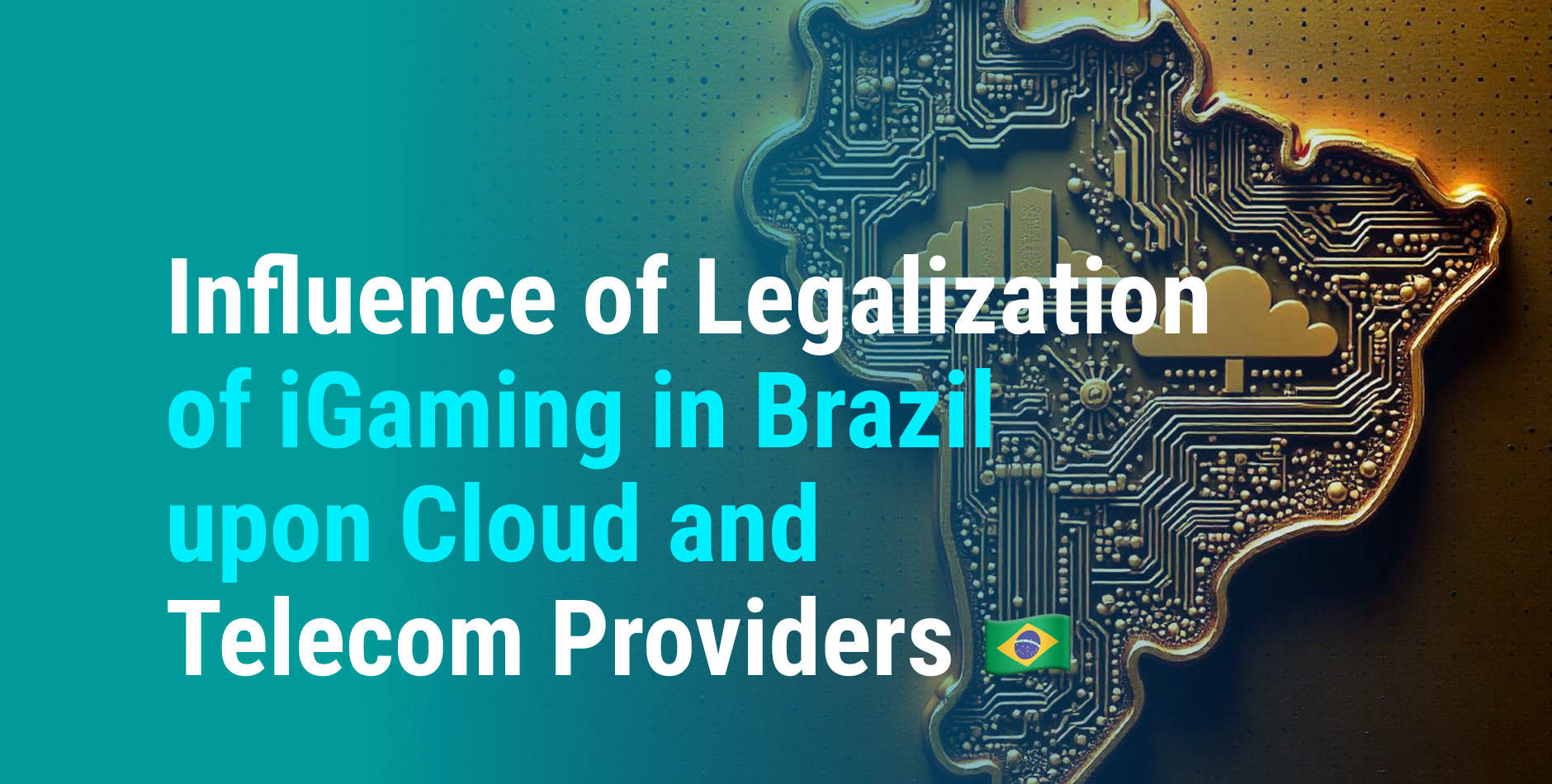Influence of Legalization of iGaming in Brazil

The Brazilian government enacted Law 14.790 in January 2025, legalizing online gaming and sports betting. This legislative reform turns a hitherto unregulated sector into a properly taxed and regulated segment.
Significance for Cloud and Telecom Providers
It is officially the world’s fifth biggest gaming market with some 103 million gamers, approximately the size of the population in Germany. Online gaming already generated substantial network traffic, representing some 15% of total betting-related internet traffic worldwide.
Official regulations and legalization also increase this already substantial traffic volume. Cloud and telco suppliers must plan ahead to increase their infrastructure proportionate to this, with bandwidth, resilience, and compliance in mind.
Market Dynamics and Entry Conditions
There is a high cost of entry to the market, such as licensing fees of approximately $6 million, as well as operating regulations such as a mandatory Brazilian ownership stake of 20%, a 12% gross revenue tax, and a 15% revenue tax for winnings exceeding $350. Brazil’s tax rates are relatively low compared to the foreign industry, making the market attractive to newcomers.
To this point, 14 operators have been licensed in full, and over 50 provisionally licensed. Major volume international operators like Bet365 and Betsson already do this, with a special .bet.br name so that they can be easily recognized as licensed.
The Brazilian online gamers’ demographics include a mean age of 39, nearly even split by gender. They consist largely of prime purchasing age (25-40) users, implying also a respectable purchasing power.
The Brazilian market is specifically mobile-oriented, with a mobile market dominated by Android with a rate of 83%. Mobile games attracted over 72 million players in 2024, indicating the demand for mobile-oriented infrastructure.
Challenges for Providers
Operators need to contend with tightened-up regulations, such as enforcing responsible gaming and maintaining facilities that can accommodate compliance and screening for financial transactions. Political and social realities, like the fact that 65% of Brazilians are against gambling, must be approached carefully by operators and players alike.
In addition, intense domestic and international rivalry imposes further pressure on providers to offer competitive, stable, and scalable infrastructure services.
The formal market in Brazil is poised for substantial growth, with projections for a $21 billion market in 2025 and substantial tax revenues. High (92.5%) internet penetration and expanding mobile coverage provide infrastructure providers with substantial opportunity for growth by helping the technical as well as compliance requirements of the operators.
The legalization in Brazil for online gaming has far-reaching implications for cloud and telecoms providers as it spurs capacity, reliability, and compliance-based demand for infrastructure in the network. Providers who are able to address such market demands can effectively monetize future business opportunities in the rapidly emerging space. At IPTP Networks, with our 228 global points of presence and established connectivity to South America, we’re well-positioned to support these infrastructure demands as the market develops.